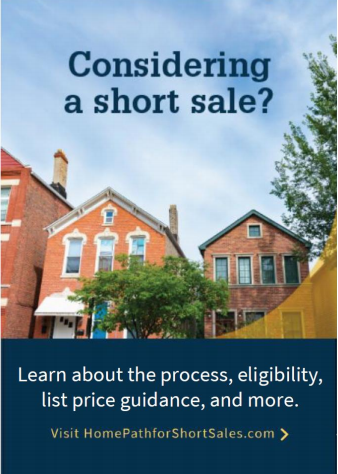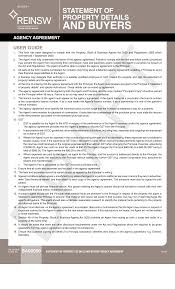
If you're looking for a multi family mortgage loan, there are several factors that you should consider. These factors include the downpayment, interest rate, as well as other financing options. This article will provide information on the down payment and rates for these types loans. Once you have this information, you will be able choose the best mortgage for you.
Multi-family mortgage rates
There are several factors that impact the interest rate of multi-family mortgage loans. First, these loans generally have higher reserve requirements that conventional loans. Multifamily loans are more risky than conventional loans. This is why buyers should seek out a multifamily lender.
The traditional FHA mortgage program allows borrowers to purchase multifamily properties up to four units. These benefits include a low downpayment requirement and a lower interest. Additional benefits include lower DTI and stringent requirements.

Requirements to make a down payment
The requirements for multi-family mortgage loans vary depending upon the type of property. A multifamily property of three units may require a 20% downpayment while a multifamily property of two units may only require a 5% deposit. There are also different guidelines from different banks regarding the amount of down payment required to purchase multifamily property.
Multi-family properties have a much higher down payment requirement than single-family homes. However you can still get approved for financing with a small down payment. Some programs may require as low as five percent down; some lenders may even allow zero down. There are also programs that allow you to use the down payment of a parent or relative to finance a portion of the mortgage.
Requirements for interest rates
You will need to satisfy several requirements in order to be eligible for a multifamily mortgage loan. Pre-qualification is the first step. This involves an assessment of your credit, income, assets, and other information. To process a loan, most lenders will require a minimum score of 620.
Alternative financing options
Alternative financing comes with some problems. Alternative financing presents some challenges. There is limited documentation, insufficient data on alternative financing's effectiveness, and wide variation among states in the types available. Policymakers may not be able to assess the benefits and harms of alternative financing if there isn't enough research.

Private equity, credit funds and online markets are other options for multifamily mortgage loan funding. Private equity funds are used often to finance commercial real property deals. These funds pool the capital and provide equity or debt financing to borrowers. This type of financing is not right for every situation and requires thorough research.
FAQ
What is a reverse mortgage?
A reverse mortgage lets you borrow money directly from your home. It works by allowing you to draw down funds from your home equity while still living there. There are two types to choose from: government-insured or conventional. A conventional reverse mortgage requires that you repay the entire amount borrowed, plus an origination fee. FHA insurance covers repayments.
How long does it take for a mortgage to be approved?
It all depends on your credit score, income level, and type of loan. It typically takes 30 days for a mortgage to be approved.
How much should I save before I buy a home?
It all depends on how long your plan to stay there. If you want to stay for at least five years, you must start saving now. But, if your goal is to move within the next two-years, you don’t have to be too concerned.
What are the advantages of a fixed rate mortgage?
A fixed-rate mortgage locks in your interest rate for the term of the loan. This means that you won't have to worry about rising rates. Fixed-rate loans also come with lower payments because they're locked in for a set term.
How many times may I refinance my home mortgage?
It depends on whether you're refinancing with another lender, or using a broker to help you find a mortgage. In both cases, you can usually refinance every five years.
What should you look out for when investing in real-estate?
The first thing to do is ensure you have enough money to invest in real estate. You can borrow money from a bank or financial institution if you don't have enough money. You also need to ensure you are not going into debt because you cannot afford to pay back what you owe if you default on the loan.
You also need to make sure that you know how much you can spend on an investment property each month. This amount should include mortgage payments, taxes, insurance and maintenance costs.
It is important to ensure safety in the area you are looking at purchasing an investment property. It would be best to look at properties while you are away.
Is it possible sell a house quickly?
It might be possible to sell your house quickly, if your goal is to move out within the next few month. Before you sell your house, however, there are a few things that you should remember. First, you will need to find a buyer. Second, you will need to negotiate a deal. Second, prepare the house for sale. Third, your property must be advertised. You should also be open to accepting offers.
Statistics
- Over the past year, mortgage rates have hovered between 3.9 and 4.5 percent—a less significant increase. (fortunebuilders.com)
- When it came to buying a home in 2015, experts predicted that mortgage rates would surpass five percent, yet interest rates remained below four percent. (fortunebuilders.com)
- Based on your credit scores and other financial details, your lender offers you a 3.5% interest rate on loan. (investopedia.com)
- The FHA sets its desirable debt-to-income ratio at 43%. (fortunebuilders.com)
- Some experts hypothesize that rates will hit five percent by the second half of 2018, but there has been no official confirmation one way or the other. (fortunebuilders.com)
External Links
How To
How to Find Houses To Rent
For people looking to move, finding houses to rent is a common task. Finding the perfect house can take time. When it comes to choosing a property, there are many factors you should consider. These factors include location, size and number of rooms as well as amenities and price range.
You can get the best deal by looking early for properties. For recommendations, you can also ask family members, landlords and real estate agents as well as property managers. This will allow you to have many choices.